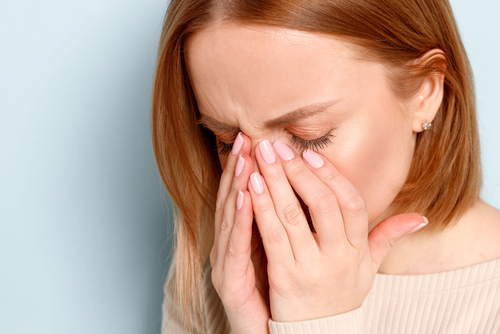Posted by: Associates in Ophthalmology (NJ) in Eye Health
Your eyes are a very sensitive part of your body. This is particularly clear during months when pollen counts are high.
Pollen causes many people to have itchy, swollen, and red eyes as their body fights it. But, your eye symptoms could also be from another source.
You could have something called chronic dry eye or dry eye syndrome. Even if you are allergic to pollen, pet dander, or other common allergens, dry eye syndrome could be contributing to your discomfort.
Chronic dry eye affects millions of people all over the world. And a lot more can trigger eye irritation and dry eye syndrome than just allergens.
Most people likely do not even know what is causing their chronic eye issues. Keep reading to learn about three signs that your dry eyes are not just from allergies.
Your Home is Clean, But Your Eyes are Itchy
An excellent way to avoid allergies is to keep allergens out of your house. You can take several measures to keep them out and reduce your exposure.
Keeping your windows shut as much as possible during allergy season will lock out pollen. Using an air purifier in your house removes unwanted particles from the air in your home.
Wiping allergen-coated surfaces with a wet cloth also removes allergens from your living space. Using a damp cloth prevents them from becoming airborne again.
It is always best to keep allergens out of the air because they can easily lead to a flare-up of allergy symptoms when airborne.
If you keep your home clean and avoid going out during high pollen counts, you should limit dry eyes. But if you still have symptoms like gritty, itchy eyes, you may have a chronic dry eye problem.
Your Eyes are Lacking Moisture
Chronic dry eye either affects the quality of your tears or the amount of tears you produce. It is impossible to tell if your tears are of poor quality by yourself.
But your eye doctor can diagnose poor tear quality. Low-quality tears are usually caused by a lack of oil in your tears.
If you are producing too few tears, you may experience more than typical allergy symptoms. For example, you may also experience stickiness or a stringy discharge in your eyes. Again, seek out professional medical help before coming to any conclusions yourself.
Allergy Medications Don’t Work
Allergies occur when our immune system overreacts to a stimulus, such as pollen. When your body detects the presence of something harmful, it releases histamines.
They cause blood vessels to expand, which helps fight off infections. Antihistamines work to suppress this response.
It is safe to use antihistamines because most allergens will not cause any serious harm, just discomfort. If you’re having eye trouble after taking allergy medication, it could be a sign you have chronic dry eyes.
Are you concerned your dry eyes could be more than allergies? Schedule an appointment at Associates in Ophthalmology in Livingston, NJ.
Come find out what is causing your dry eyes and what you can do to lead a more comfortable life!


